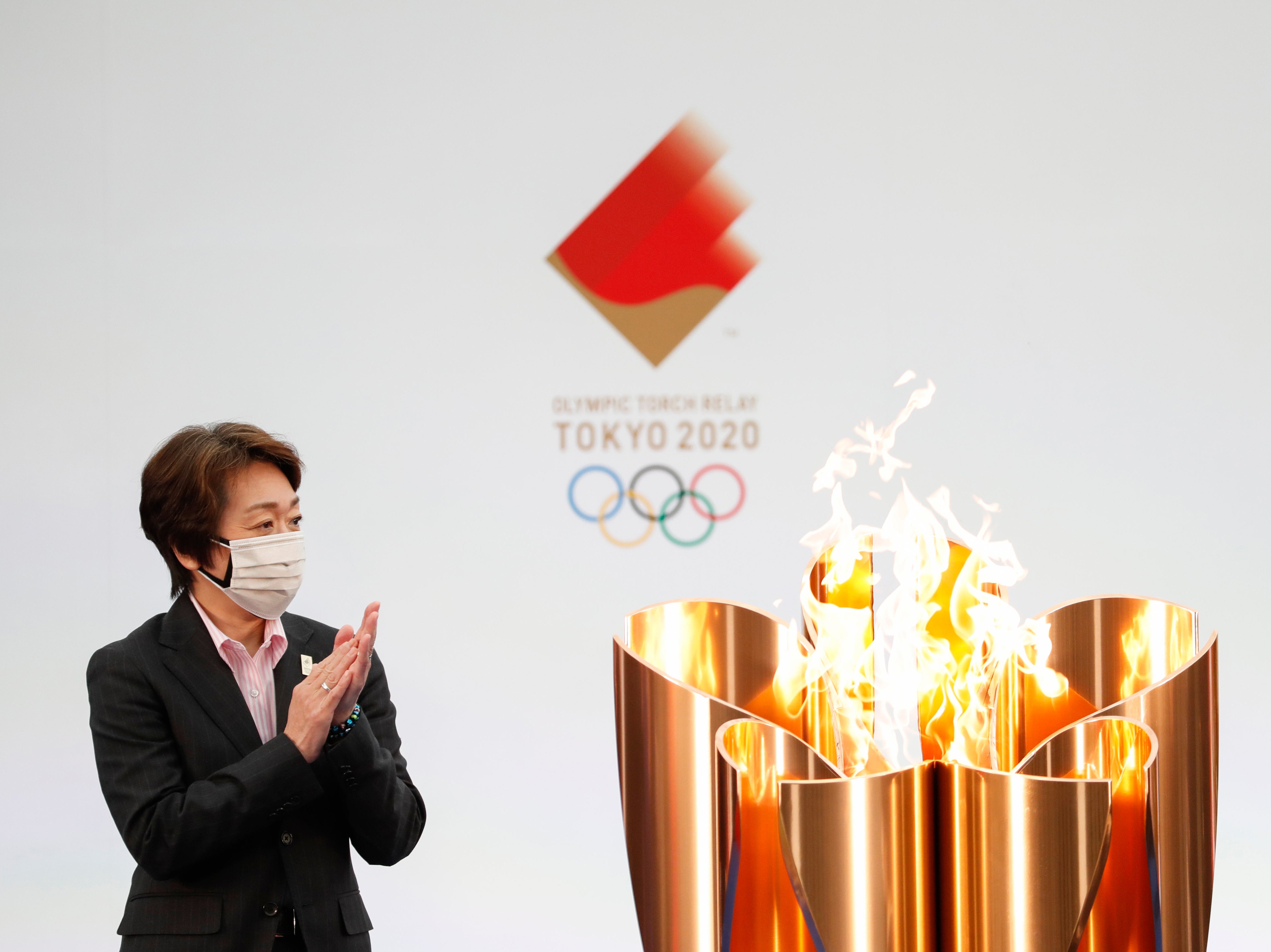Coronavirus: Japan declares state of emergency in Tokyo just months before Olympics
Tokyo 2020 president insists Games will not be cancelled despite surging Covid cases

Your support helps us to tell the story
From reproductive rights to climate change to Big Tech, The Independent is on the ground when the story is developing. Whether it's investigating the financials of Elon Musk's pro-Trump PAC or producing our latest documentary, 'The A Word', which shines a light on the American women fighting for reproductive rights, we know how important it is to parse out the facts from the messaging.
At such a critical moment in US history, we need reporters on the ground. Your donation allows us to keep sending journalists to speak to both sides of the story.
The Independent is trusted by Americans across the entire political spectrum. And unlike many other quality news outlets, we choose not to lock Americans out of our reporting and analysis with paywalls. We believe quality journalism should be available to everyone, paid for by those who can afford it.
Your support makes all the difference.Japan has declared a third state of emergency in Tokyo and three other areas amid a coronavirus resurgence just three months ahead of the Olympics.
The move is expected to be “short and intensive” to stop people from travelling and spreading the virus for about a fortnight during Japan’s “Golden Week” of holidays from late April until early May.
It comes after experts and local leaders raised concerns that ongoing semi-emergency measures had failed and tougher steps were urgently needed.
Prime minister Yoshihide Suga announced the emergency for Tokyo, Osaka, Kyoto and Hyogo from 25 April until 11 May.
However, Tokyo 2020 president Seiko Hashimoto insisted the Games would not be cancelled.
Under the measures, restaurants, bars and karaoke parlours serving alcohol will be forced to close, as will shopping centres, department stores, theme parks, theatres and museums, while big sporting events will be held without spectators.
Restaurants that do not serve alcohol and public transportation services will be asked to close early.
Schools will stay open, but universities will be advised to return to online classes.
Past emergency measures, issued a year ago and then in January, authorised only non-mandatory requests.
However, the government has since toughened a law on anti-virus measures to allow authorities to issue binding orders for non-essential businesses to shorten their hours or close in exchange for compensation for those who comply and penalties for violators.
Mask-wearing, staying home and other measures for the general public remain non-mandatory requests, and experts are concerned about whether they will be followed.

But economy minister Yasutoshi Nishimura warned breaching the restrictions would carry penalties in some cases.
He added: “We absolutely have to limit the movement of people, and we have to do it decisively.
“We need powerful, short and focused measures.”
Japan has avoided an explosive spread of the pandemic experienced by many countries.
There have been about 550,000 cases and less than 10,000 deaths – significantly lower numbers than in other large economies.
But the latest rise in infections has stoked alarm, with a surge in a mutant variant and a shortage of medical staff and hospital beds in some areas.
Mr Suga said Japan would take measures to ensure it could safely hold the Olympics this summer.
Tokyo 2020 President Seiko Hashimoto also said organisers were not considering cancelling.
She told a news conference on Friday: “We, as Tokyo 2020, continue to wish for the swift return to normalcy and will continue to work closely with the relevant parties to make sure a safe and secure Olympics can happen.”
Additional reporting by agencies




Join our commenting forum
Join thought-provoking conversations, follow other Independent readers and see their replies
Comments